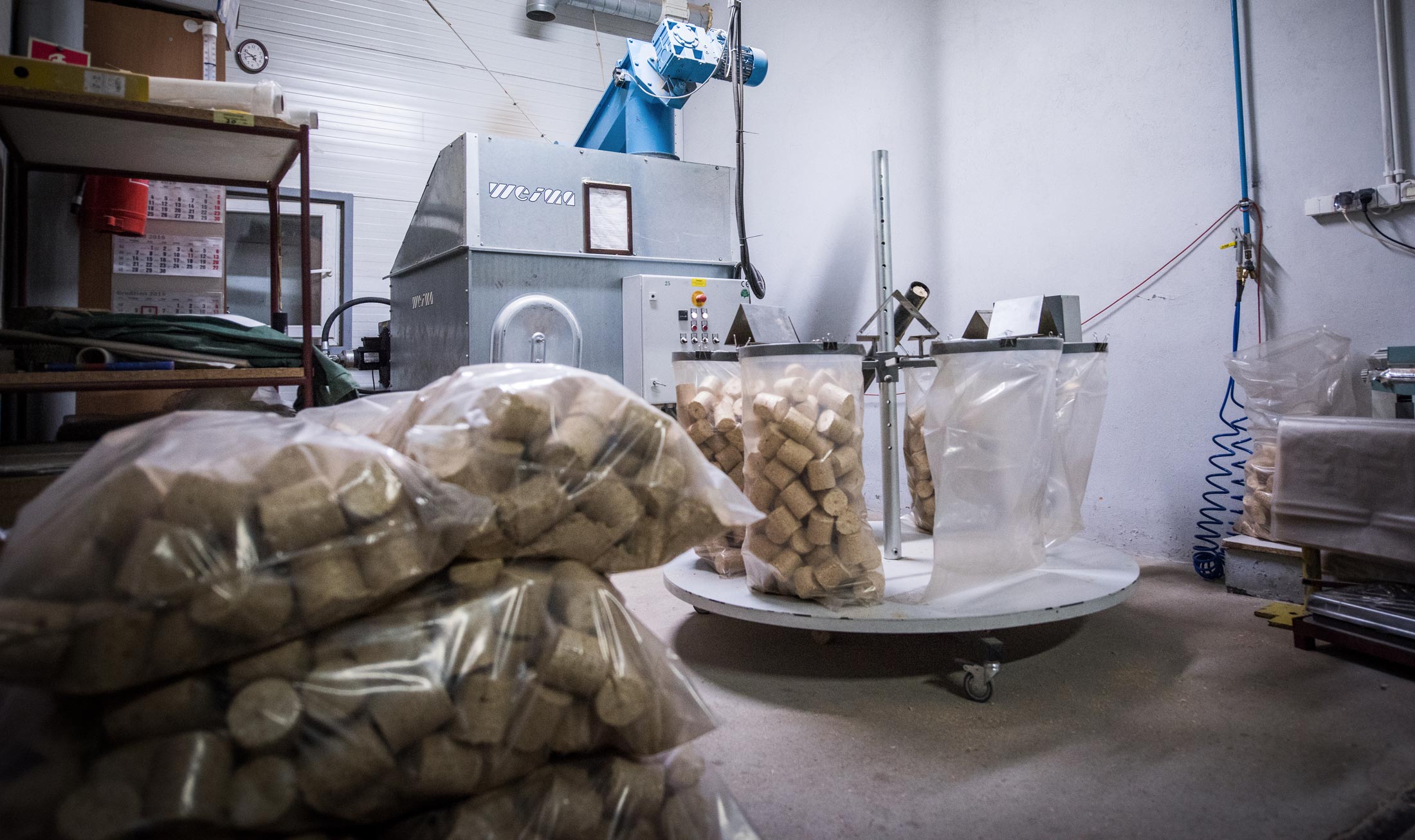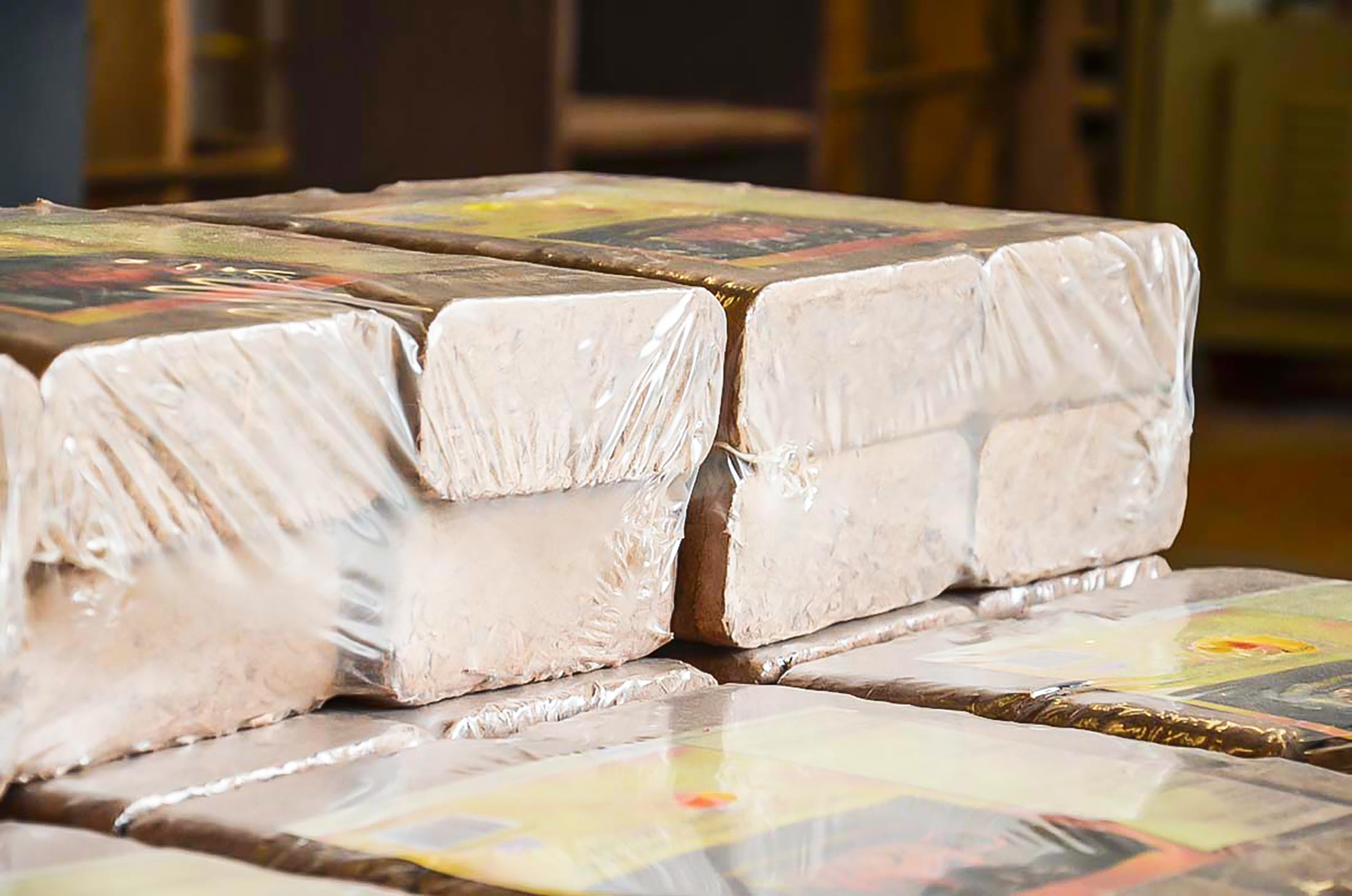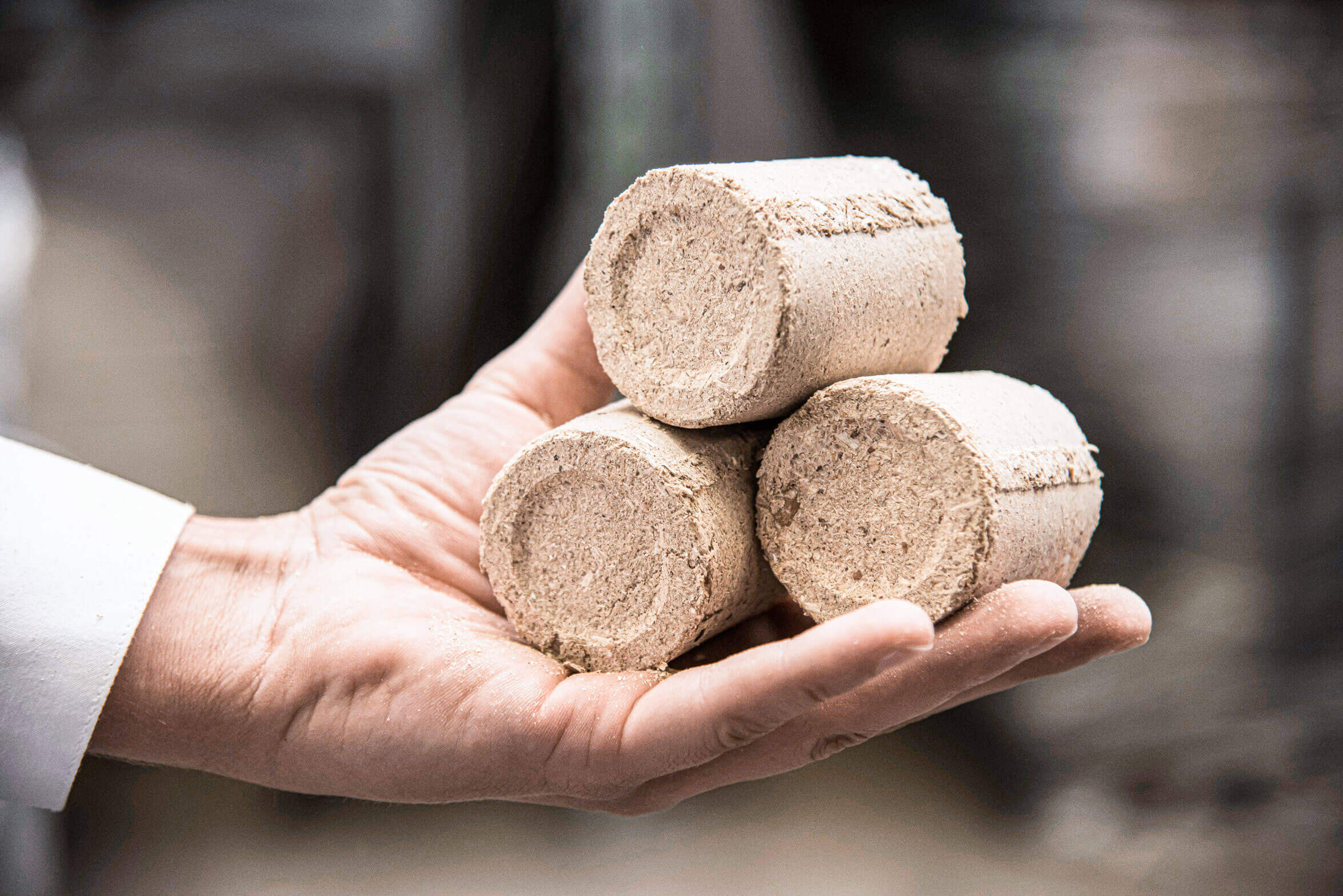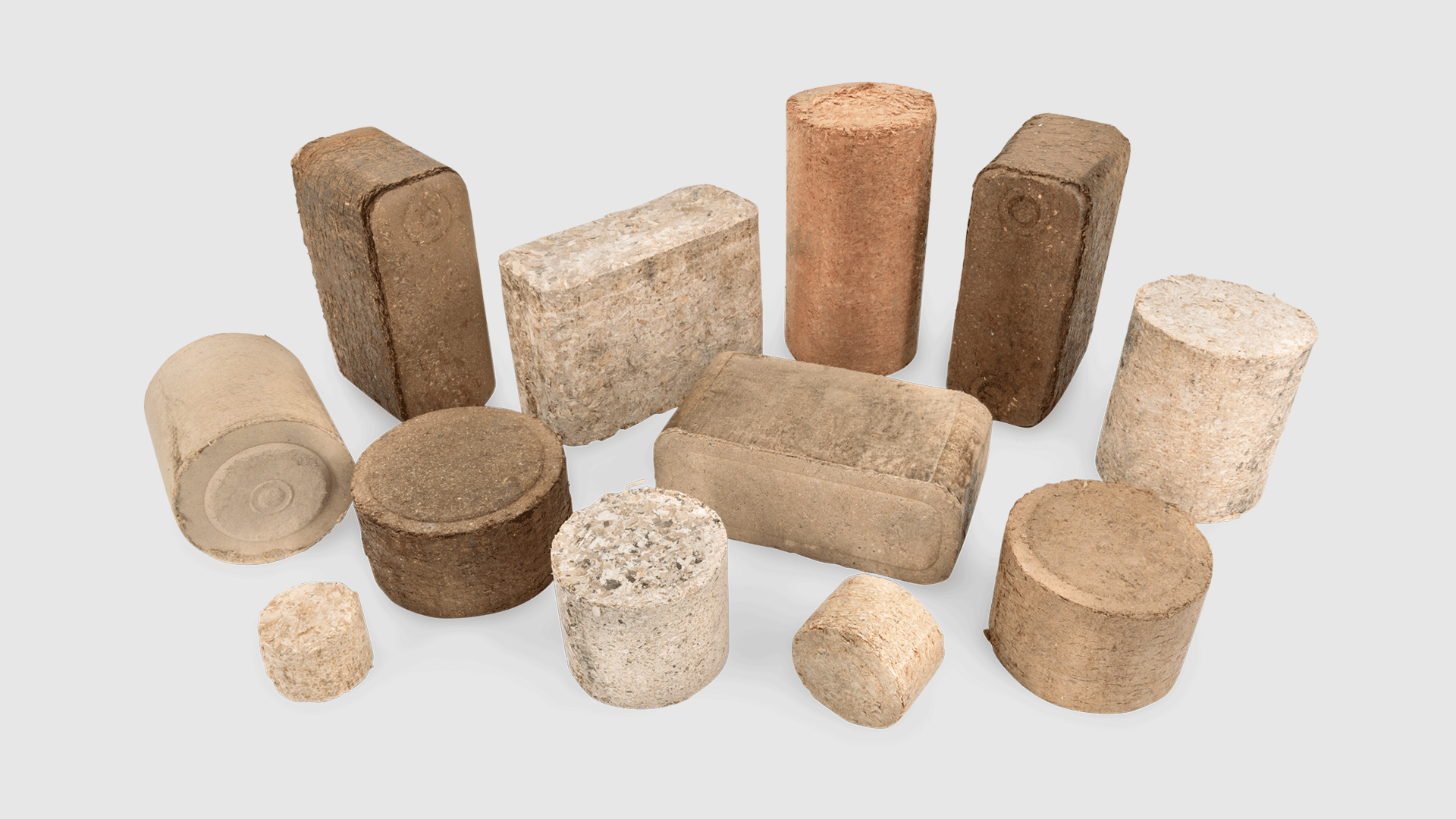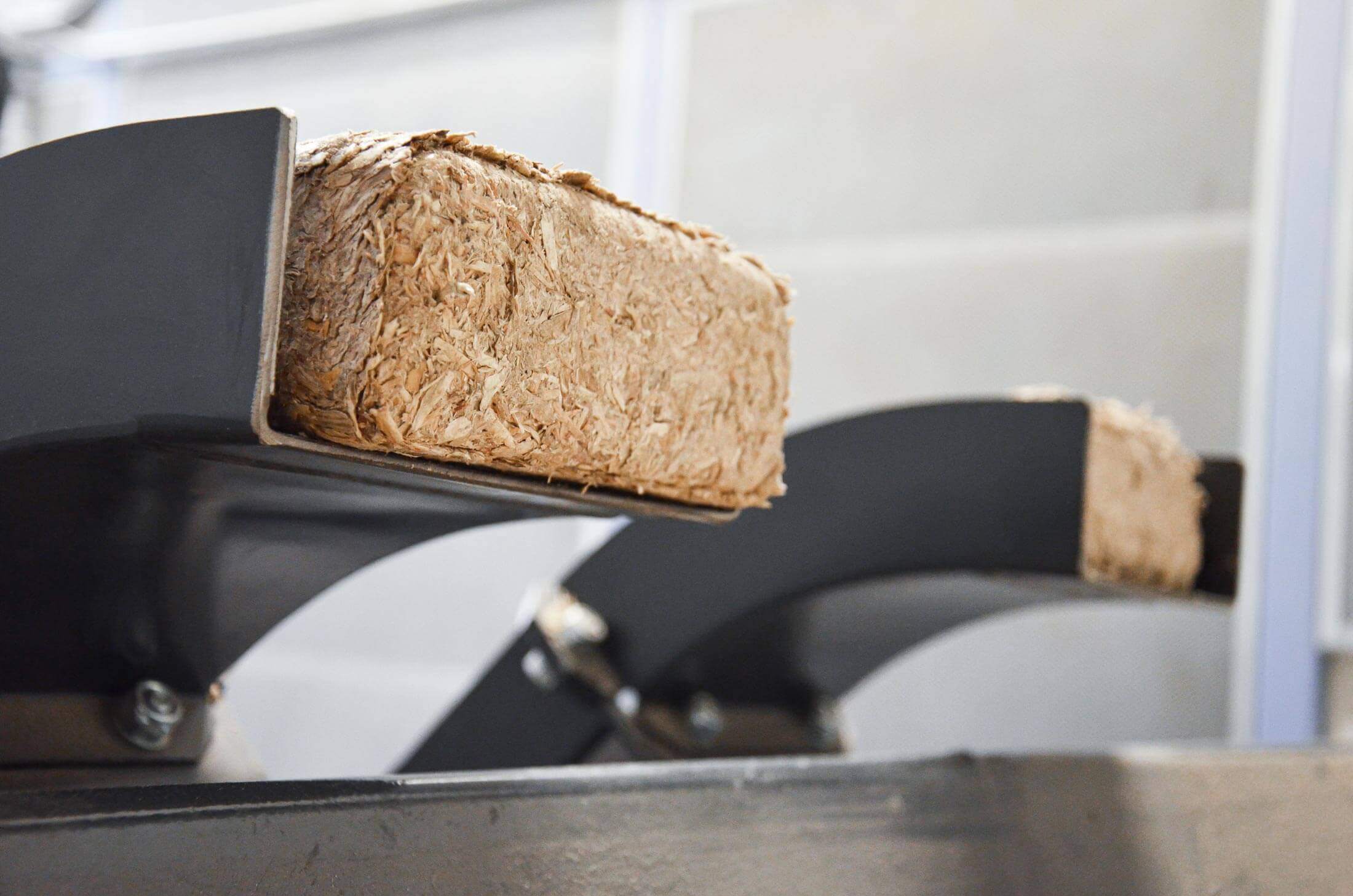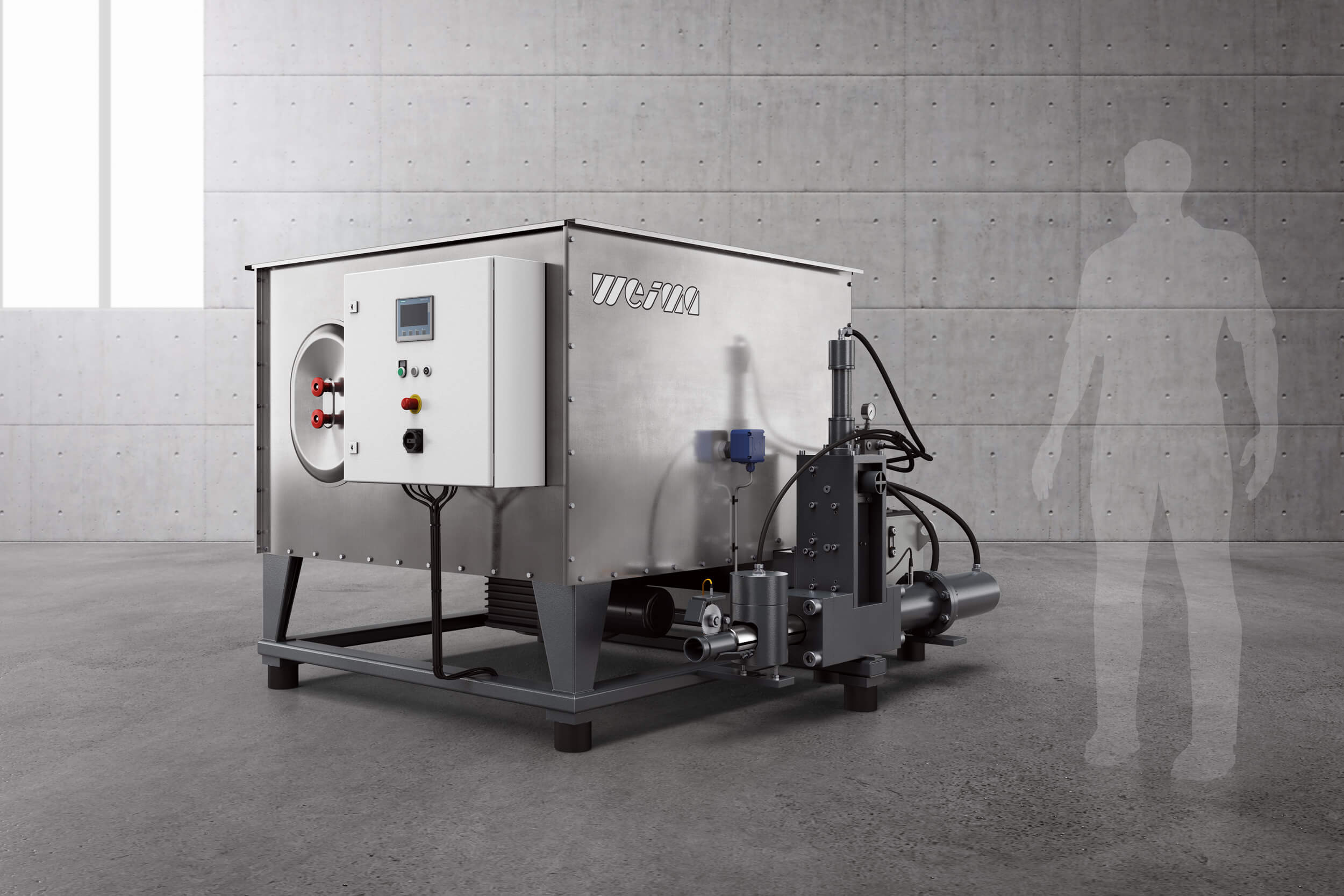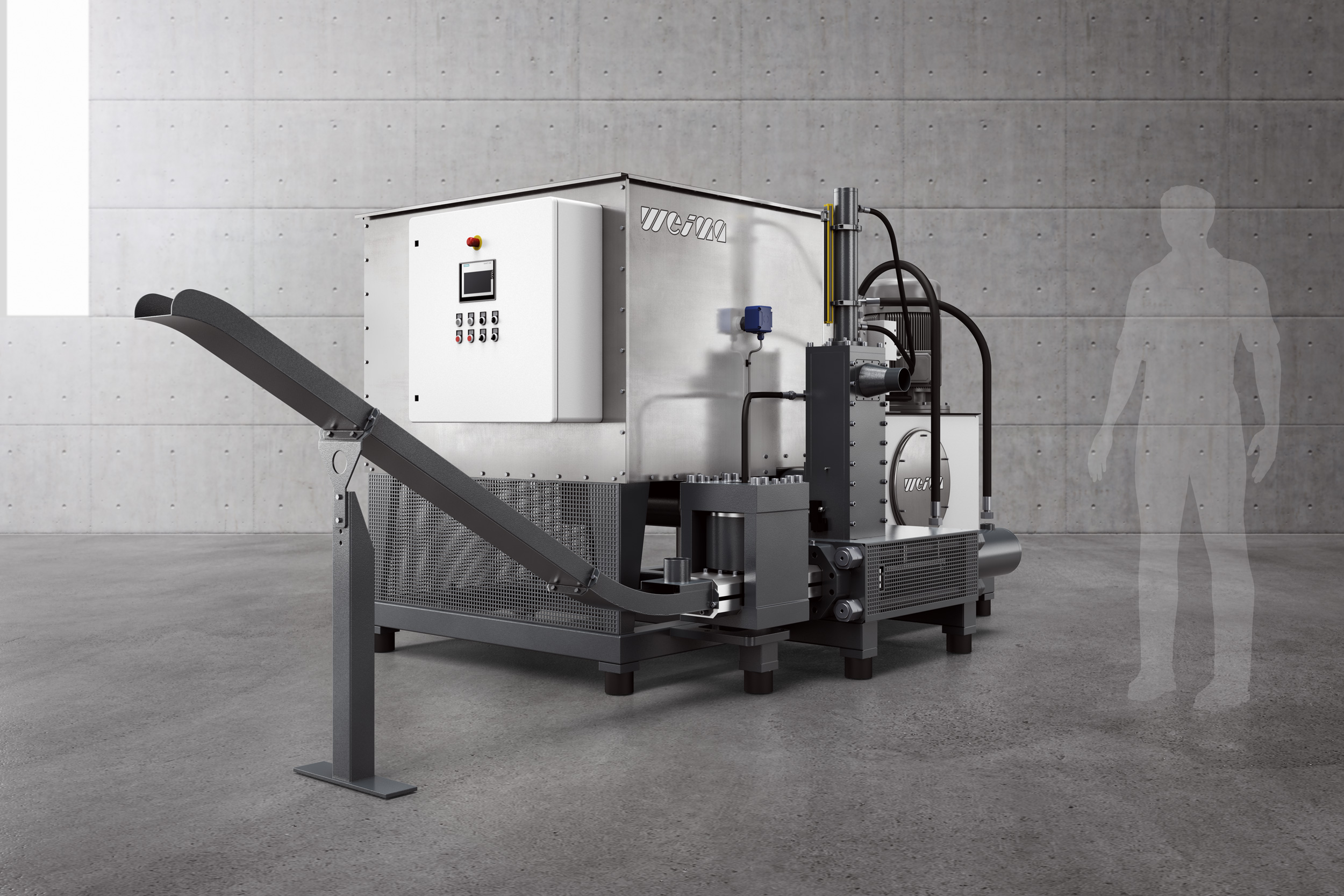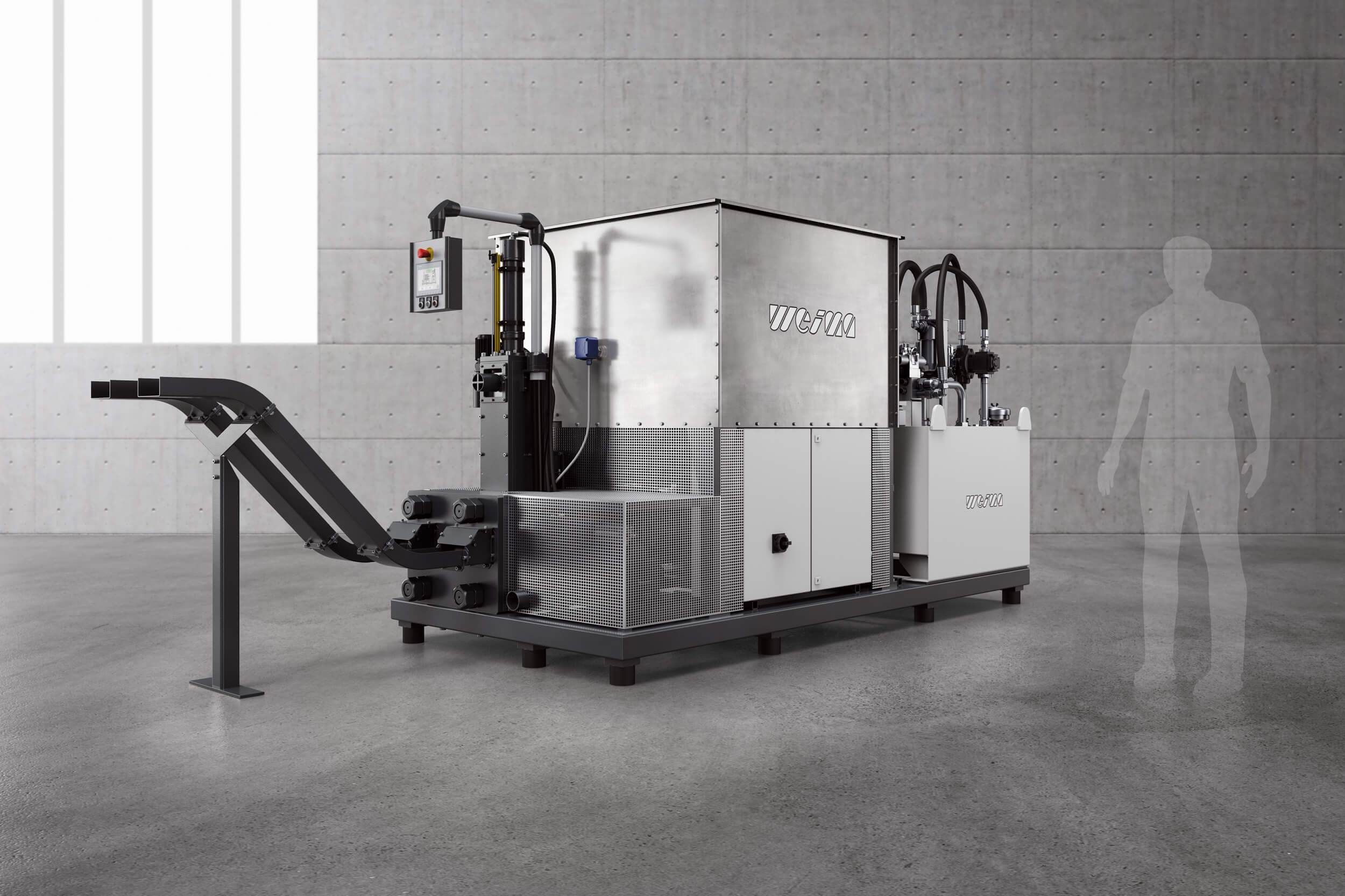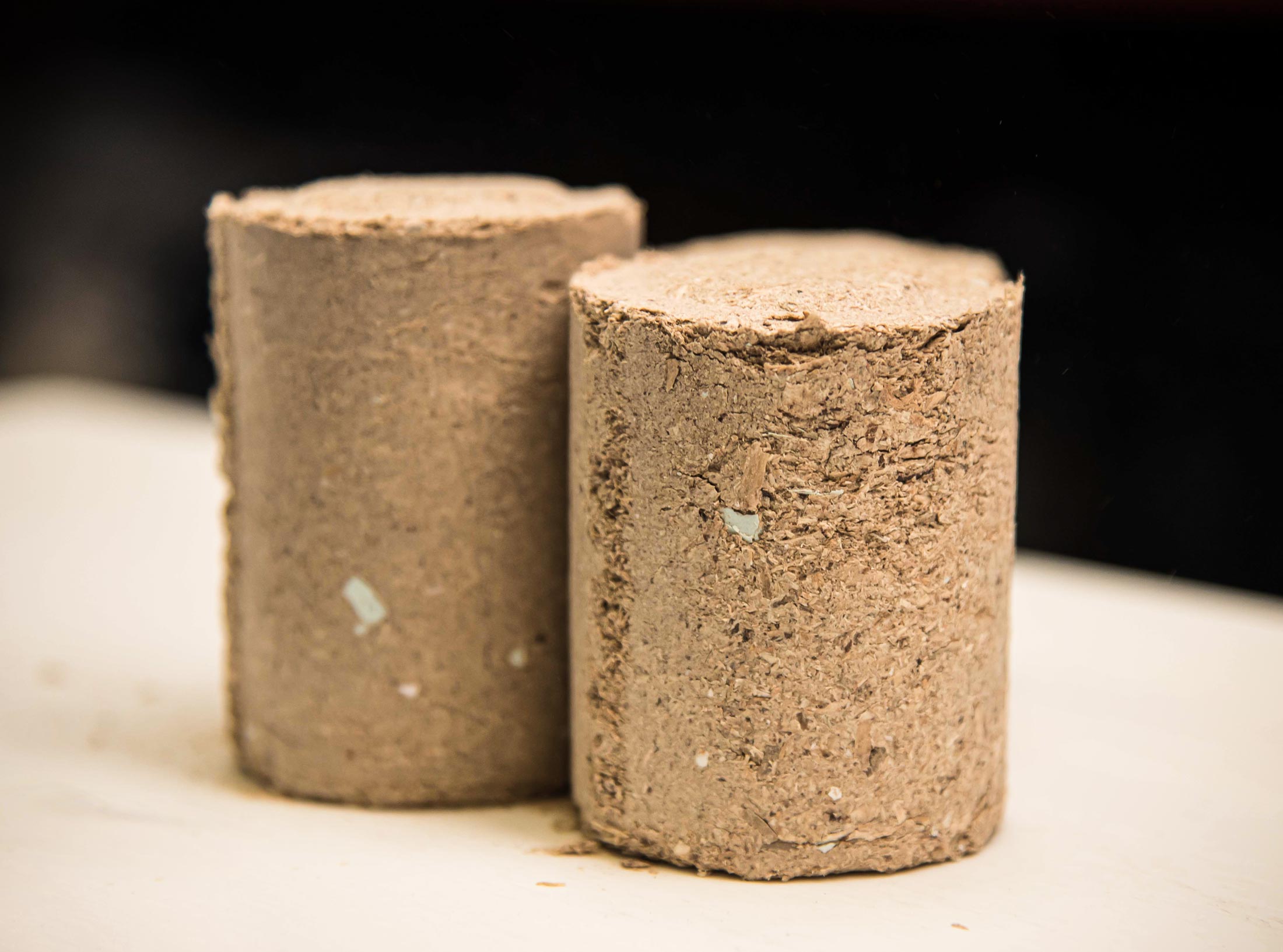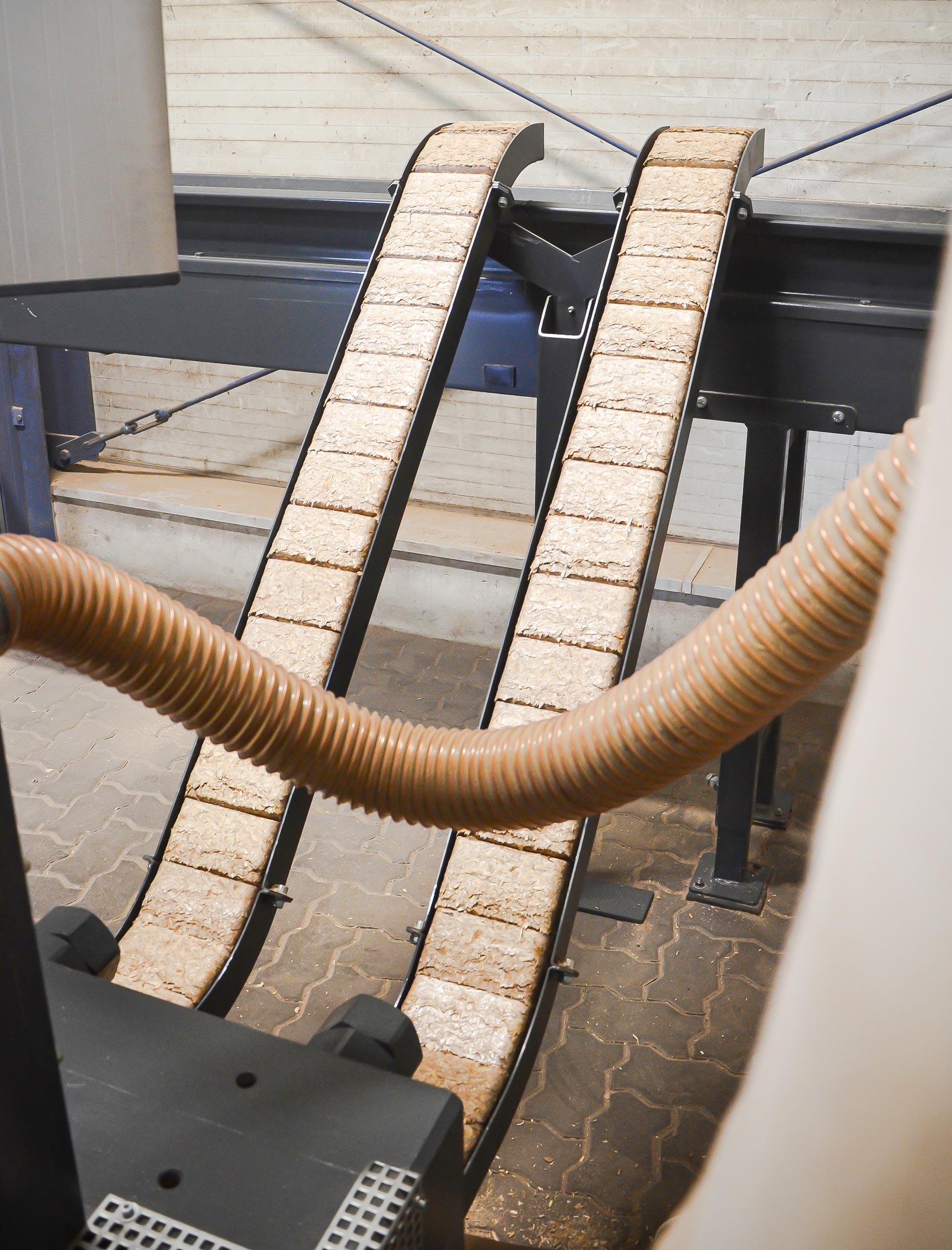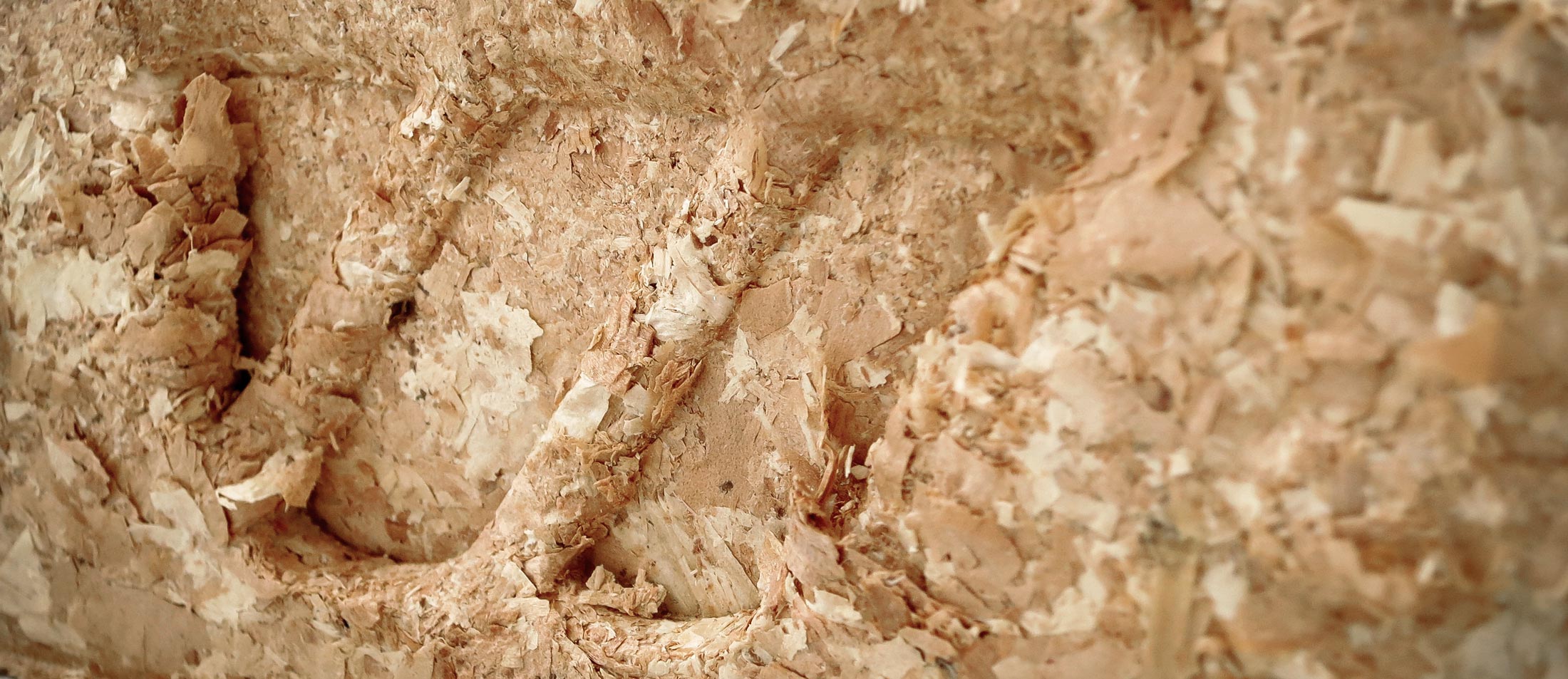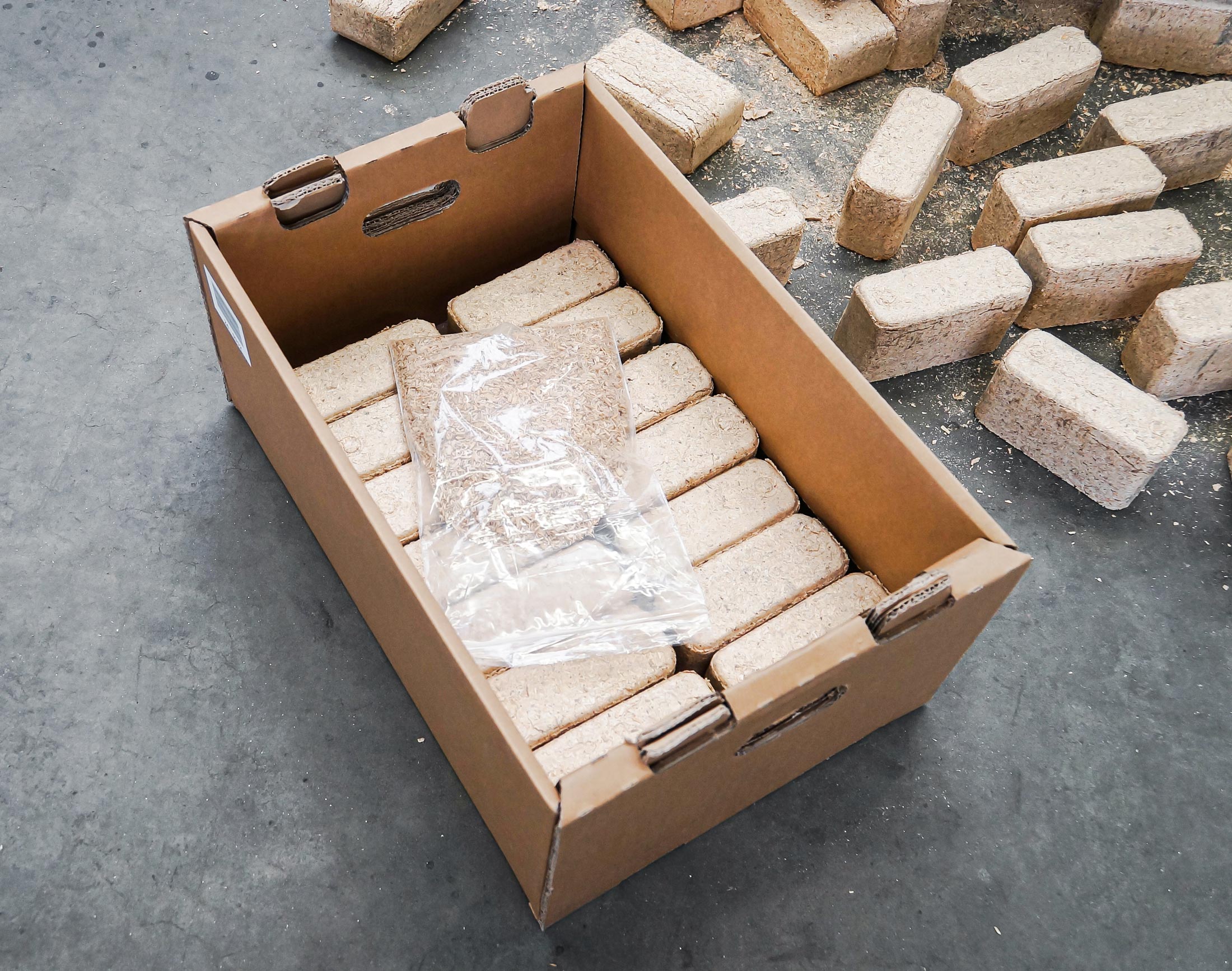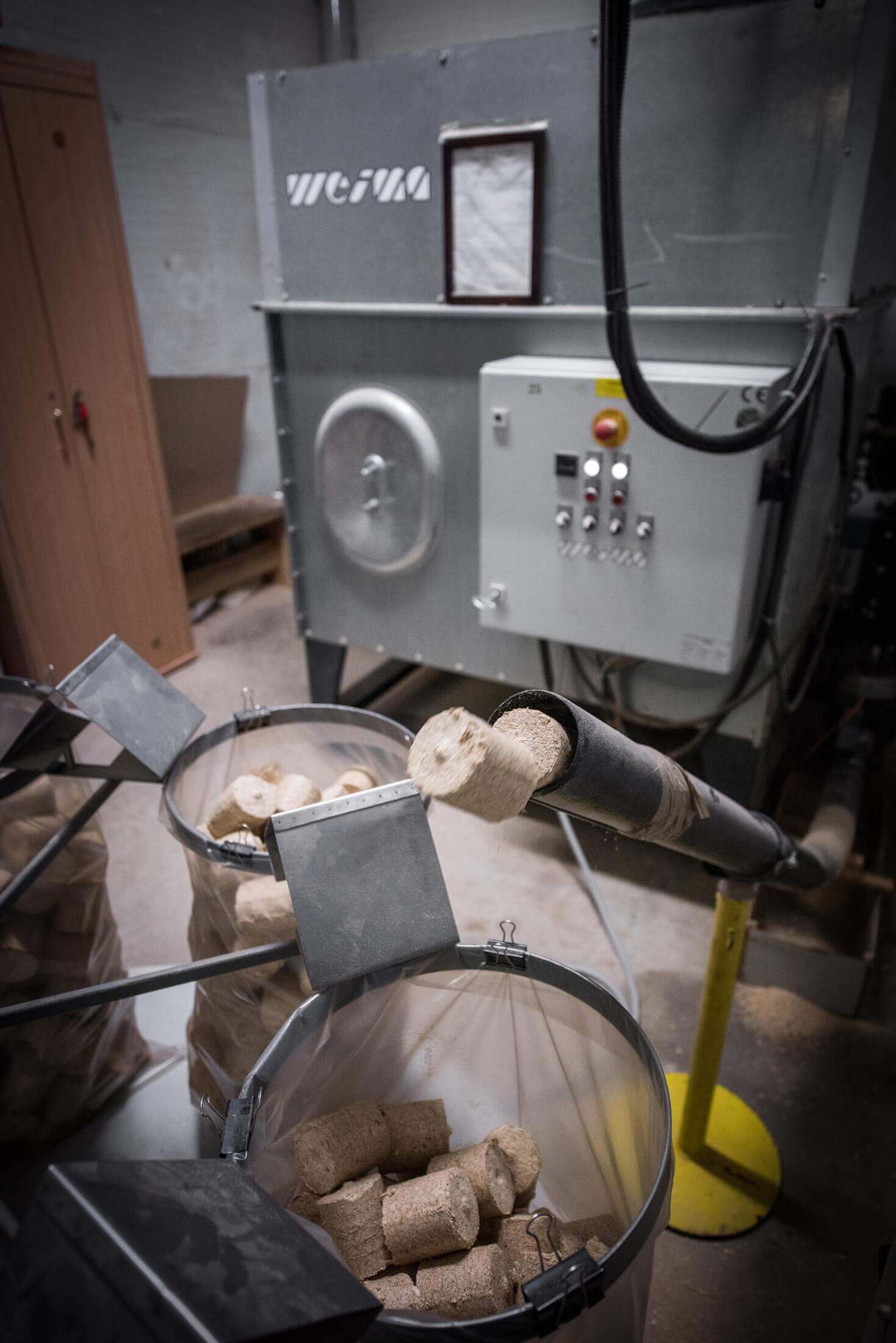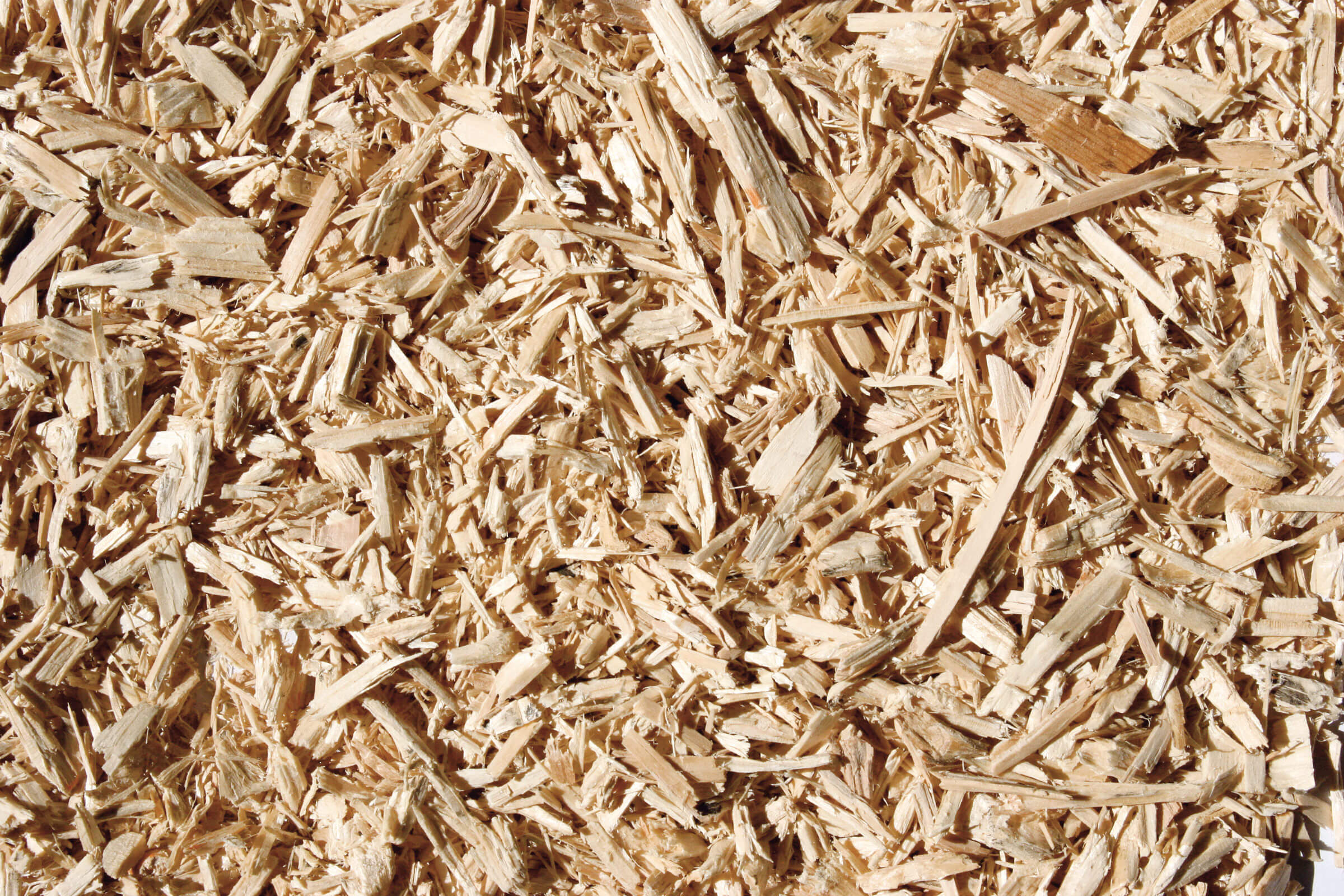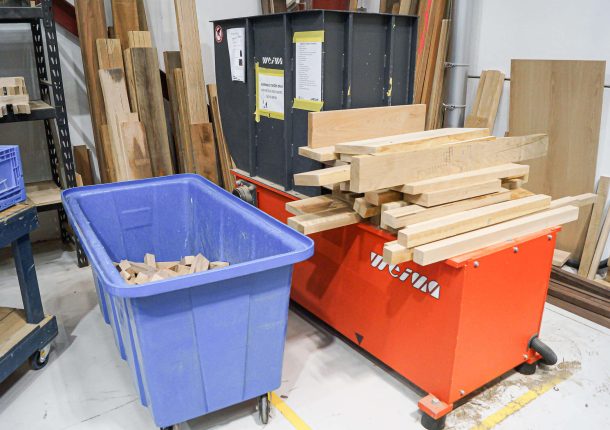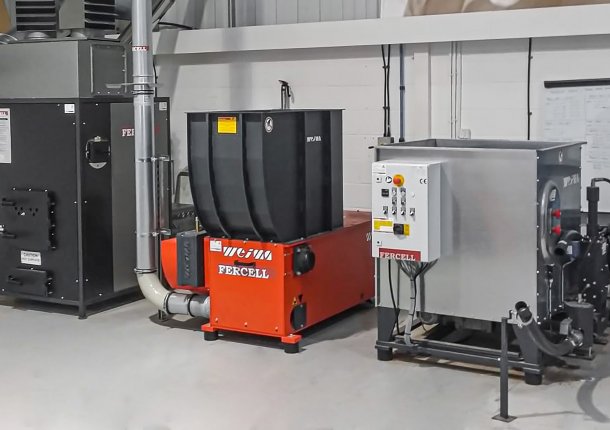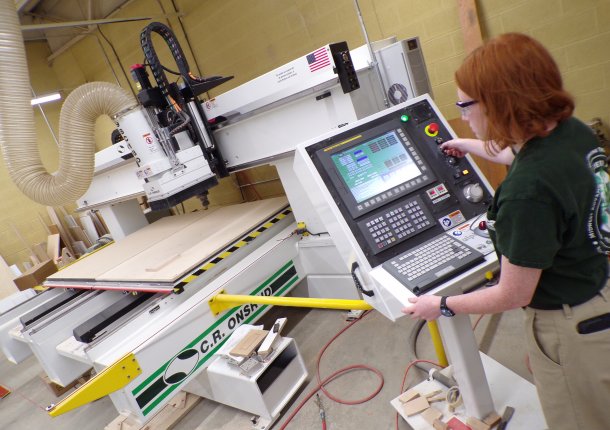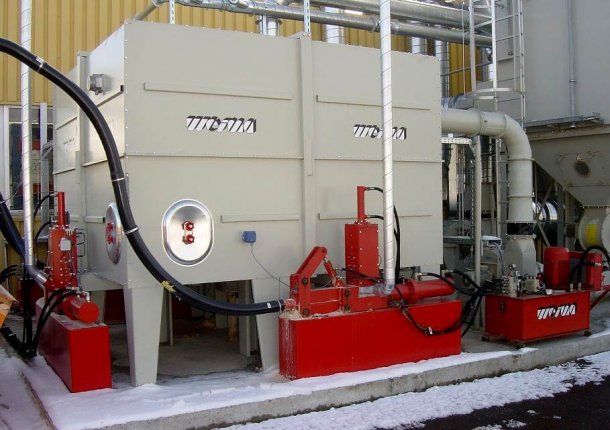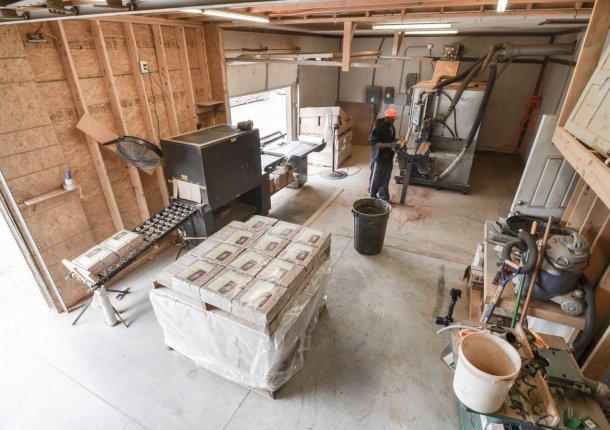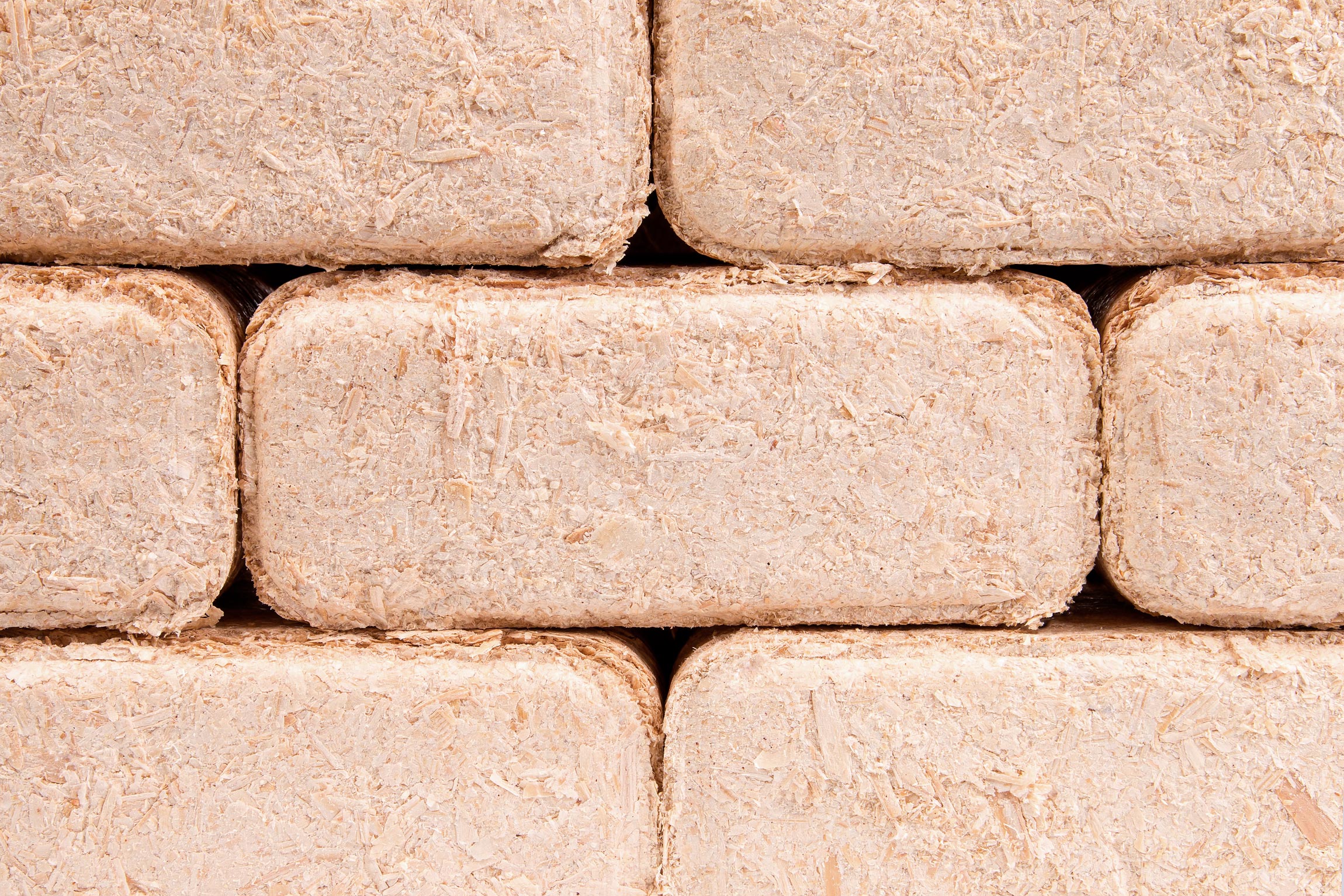
Wood briquetting presses | For energy alternatives and easy storage
Briquette presses from WEIMA convert valuable waste into compact briquettes that can be burned to subsidize your operation‘s energy costs or sold for profit.
The wood briquetting process uses no binders or glues– the material you put into it is what comes out of it. The difference? The amount of space it takes up! Learn more about space savings, storage, haul-away alternatives and other options for this valuable byproduct.
Wood briquetting presses | For energy alternatives and easy storage Wood briquetting presses | For energy alternatives and easy storage Wood briquetting presses | For energy alternatives and easy storage
These briquette presses are currently particularly popular.
Learn more about briquetting and the energetic use of wood waste
Future-oriented and environmentally conscious
Wood shavings briquetting with a WEIMA TH 1200
A WEIMA TH 1200 briquetting press compacts wood shavings into solid briquettes.
The economic added value for the entire furniture industry as well as for sawmills and planing mills, joineries and carpentries: In the case of wood, a volume reduction of up to 90 percent is possible – regardless of whether the wood is hardwood, solid wood, softwood, chipboard or plywood, multiplex, OSB or MDF as chips, shavings, sawdust or sanding dust.
In times of increasingly scarce raw materials and a rapid increase in the cost of energy and heat supply, the utilization of wood waste is of the utmost importance. Waste from the wood processing and woodworking industry is a valuable raw material that can be efficiently used in briquette form as a fuel for energy or heat generation.
Customer applications and examples
Example from the woodworking and wood processing industry
Advantages through wood briquetting
1. Volume reduction of up to 90 % of the starting material
2. Reduction of dust emission
3. High pressing pressure for high briquette density
4. Reduction of fire and explosion hazard
5. Better residue handling
6. Minimized disposal costs
7. Reduction of transport and storage costs
8. User-friendly design
9. Designed for easy maintenance
Passion for wood waste recycling
Wood chips and sawdust accumulate daily in woodworking shops and industrial companies. This wood waste takes up an enormous amount of space during storage and transport. Compact briquettes are not only space-saving, but also easier to transport and, in contrast to loose material, less flammable. With WEIMA briquetting presses you can produce compact briquettes and use them to generate heating energy, for example in a heating oven.
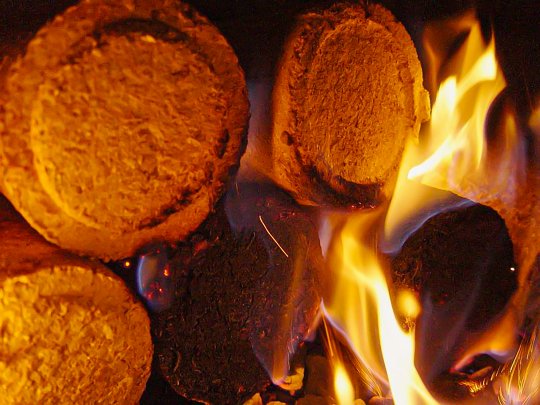
Burning round wood briquettes
Inquire about a wood briquette press today
Request a quote
Did you know?
Two kilograms of wood briquettes can replace a whole liter of heating oil.
By processing, i.e. shredding and drying to a moisture content of usually less than 10%, compacted wood residues achieve a high degree of homogeneity through briquetting.
Due to the cross-linking of wood fibers and the adhesive effect of the wood's own ingredients (e.g. lignin, wax), WEIMA wood briquettes are dimensionally stable without any added binders.
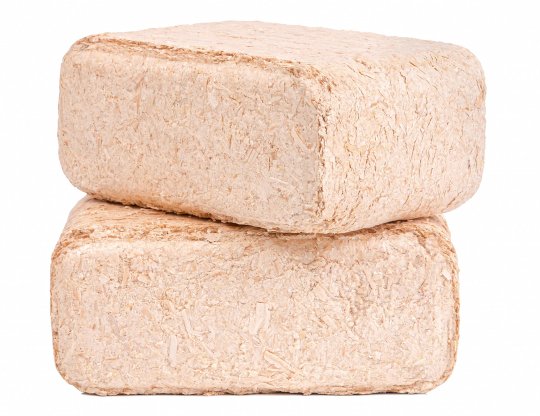
Solid briquettes made of wood

Rectangular wood shavings briquettes
Success stories
What our customers think
What are you looking for?
Explore all WEIMA solutions
